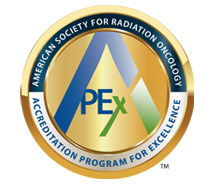Newly published: guidelines on PBI, esophageal cancer; QPP final rule; Early Career focus groups
November 15, 2023
| Register and book your housing now for the 2024 Multidisciplinary Head and Neck Cancers Symposium |
| The 2024 Multidisciplinary Head and Neck Cancers Symposium takes place February 29 - March 2, 2024, at the JW Marriott Desert Ridge in Phoenix. It is co-sponsored by the American Head and Neck Society, the American Society of Clinical Oncology, ASTRO and the Society for Immunotherapy of Cancer. The program provides the most up-to-date information on multidisciplinary therapies, the latest clinical research, new treatment strategies, supportive care, scientific breakthroughs and more. An attendee from the last meeting shared, “This meeting provides great networking opportunities and updates on current and future therapies.” Review the schedule of events to see all the sessions and presenters. Register now to take advantage of the early-bird rate for this must-attend multidisciplinary meeting! |
| Register for the ASTRO Coding and Coverage Seminar |
| Don’t miss the upcoming December 2023 Virtual Coding and Coverage Seminar which will address coding and coverage policies specific to radiation oncology, how to assign accurate coding, clinical case study walkthroughs, Q&A sessions and much more. View the schedule of events for an in-depth look at the important topics that will be covered. Radiation oncologists and their coding staff are encouraged to participate in this convenient one-day virtual seminar led by coding experts on Saturday, December 9. All participants will receive early access to the 2024 ASTRO Coding Resource along with an electronic and print copy. Register now before the deadline! |
| ASTRO guideline on Partial Breast Irradiation (PBI) published |
| ASTRO’s new partial breast irradiation for patients with early-stage invasive breast cancer or ductal carcinoma in situ (DCIS) guideline provides updated guidance for physicians on the appropriate indications and techniques for PBI. The guideline is based on an independent systematic review and analysis prepared by an evidence-based practice center on behalf of the Agency for Healthcare Research and Quality (AHRQ). This guideline replaces ASTRO's original 2009 guideline on accelerated partial breast irradiation and the 2017 update focused on the use of intraoperative radiation therapy (IORT). Recommendations address appropriate indications for PBI as an alternative to whole breast irradiation as well as appropriate PBI techniques, dose-fractionation schedules, target volumes and planning parameters, with respect to ipsilateral breast recurrence outcomes and toxicity including cosmesis. For a more detailed summary of the key points from the guideline, see ASTRO’s news release. |
| Joint guideline on esophageal cancer published |
| ASTRO has co-published a joint collaborative guideline with the Society of Thoracic Surgeons (STS) and ASCO on multimodality therapy for locally advanced cancer of the esophagus or gastroesophageal junction. The guideline addresses key clinical questions pertinent to the care of patients with locally advanced, resectable thoracic esophageal cancer, including decisions regarding neoadjuvant or definitive chemoradiation, approach and timing of surgery, and adjuvant therapy. This is the first comprehensive guideline addressing multidisciplinary management of esophageal cancer that incorporates the input of surgeons, radiation oncologists and medical oncologists. |
| New on the Blog: Navigating the APEx journey | |
 |
ASTRO’s latest blog features five members of the radiation oncology community from Wisconsin, New Jersey, New York and Texas, who have successfully achieved APEx Accreditation or are in the process of doing so. Read about their experiences including the pivotal factors that led to their decision to change accrediting bodies, and the challenges and successes encountered. Their collective experiences offer a roadmap for other practices that may be considering APEx. |
| Highlighting virtual peer review on National Rural Health Day |
| Tomorrow, November 16, is National Rural Health Day! Peer review processes are often cited as a challenge for rural practices. Did you know that virtual peer review is compliant with APEx Standards? This includes the use of ASTRO's free Peer-to-Peer Match program connecting radiation oncologists across the country for peer review collaboration. Find out how you can strengthen your rural practice through ASTRO's APEx - Accreditation Program for Excellence® by contacting us. |
| CMS finalizes limited changes for 2024 Quality Payment Program |
| On November 2, the Centers for Medicare and Medicaid Services (CMS) issued the 2024 Quality Payment Program (QPP) final rule that includes modest policy changes to the Merit-based Incentive Payment System (MIPS), the MIPS Value Pathways (MVP) framework, including the Advancing Cancer MPV, and the Advanced Alternative Payment Model program. More information can be found in ASTRO’s summary. |
| Dr. Monica Bertagnolli confirmed as NIH Director |
| The Senate confirmed Monica Bertagnolli, MD, as the 17th director of the National Institutes of Health (NIH). ASTRO wrote senators backing her nomination based on her excellent track record of leading organizations, including as director of the National Cancer Institute, along with experience collaborating across the medical oncology, radiation oncology and pathology fields, and expertise in clinical trials. Visit What’s Happening in Washington for more. |
| Early career physicians: Share your input with your Society |
| The ASTRO Early Career Committee (ECC) is hosting four focus groups to determine how ASTRO can provide more value to our early career members and their practices. The ECC is seeking guidance and input on how the Society can best support early career members, what resources ASTRO can provide, and how to optimize the value of ASTRO membership. Focus groups will be held November 28 and 29 and December 4 and 6. Learn more and register for a date and time that works best for you. |


